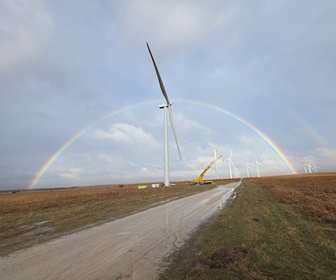The EU Commission has announced that it will launch an inquiry into Chinese suppliers of wind turbines under the new Foreign Subsidies Regulation. The announcement comes as Chinese wind turbine manufacturers are pushing hard and winning some orders in Europe.
They offer cheap turbines and generous finance which distorts the integrity of the European market and disrupts fair competition.
Commission Executive Vice-President for Competition Margarethe Vestager announced that the EU will use its new 'Foreign Subsidies Regulation' to launch an inquiry into Chinese wind turbine manufacturers. The EU will initially investigate unfair trade practices in 5 markets: Bulgaria, France, Greece, Romania, Spain.
Announcing the new inquiry Commissioner Vestager said that the large excess capacities of subsidised Chinese wind turbines “is not only dangerous for our competitiveness. It also jeopardises our economic security.” She added that the EU must not repeat the mistakes it did in losing its solar manufacturing industry.
“We fully understand the Commission’s rationale,” said WindEurope CEO Giles Dickson. “Chinese wind turbine manufacturers are offering much lower prices than European manufacturers and incredibly generous financing terms with up to 3 years deferred payment. You can’t do that without unfair public subsidy. What’s more the European manufacturers aren’t allowed to offer deferred payment like that under OECD rules.”
Chinese wind turbines are being offered in Europe at up to 50% lower prices than Europe-made turbines. The deferred payments effectively mean that Chinese manufacturers offer their turbines for free until the wind farm operator has 3 years of revenues.
Under the Foreign Subsidies Regulation the Commission has the power to investigate the existence and the effects of foreign subsidies and impose redressive measures once a distortion of competition has been established. During the investigation the Commission will assess all sort of evidence of alleged unfair practices. Based on the evidence gathered the European Commission may go into an in-depth investigation. It would then have an 18-month deadline.









